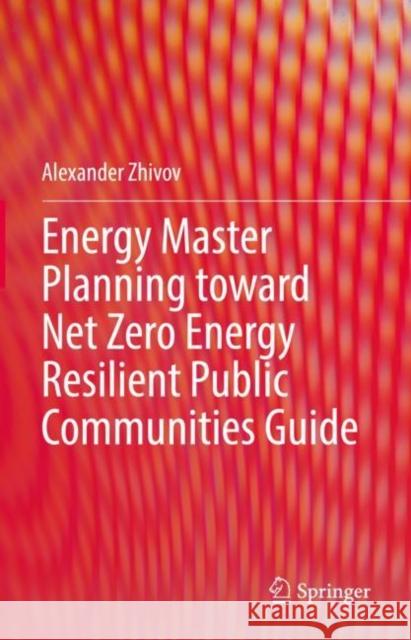Energy Master Planning Toward Net Zero Energy Resilient Public Communities Guide » książka
Energy Master Planning Toward Net Zero Energy Resilient Public Communities Guide
ISBN-13: 9783030958329 / Angielski / Twarda / 2022
Energy Master Planning Toward Net Zero Energy Resilient Public Communities Guide
ISBN-13: 9783030958329 / Angielski / Twarda / 2022
(netto: 651,74 VAT: 5%)
Najniższa cena z 30 dni: 655,41
ok. 16-18 dni roboczych.
Darmowa dostawa!
Best practices from around the world have proven that holistic Energy Master Planning can be the key to identifying cost-effective solutions for energy systems that depend on climate zone, density of energy users, and local resources. Energy Master Planning can be applied to various scales of communities, e.g., to a group of buildings, a campus, a city, a region, or even an entire nation.
Although the integration of the energy master planning into the community master planning process may be a challenging task, it also provides significant opportunities to support energy efficiency and community resilience by increasing budgets for investments derived from energy savings, by providing more resilient and cost-effective systems, by increasing comfort and quality of life, and by stimulating local production, which boosts local economies.
The Guide is designed to provide a valuable information resource for those involved in community planning: energy systems engineers, architects, energy managers, and building operators. Specifically, this Guide was developed to support the application of the Energy Master Planning process through the lens of best practices and lessons learned from case studies from around the globe. The Guide introduces concepts and metrics for energy system resilience methodologies, and discusses business and financial models for Energy Master Plans implementation. This information can help planners to establish objectives and constraints for energy planning and to select and apply available technologies and energy system architectures applicable to their diverse local energy supply and demand situations.
This Guide is a result of research conducted under the International Energy Agency (IEA) Energy in Buildings and Communities (EBC) Program Annex 73 and the US Department of Defense Environmental Security Technology Certification Program (ESTCP) project EW18-5281 to support the planning of Low Energy Resilient Public Communities process that is easy to understand and execute.











